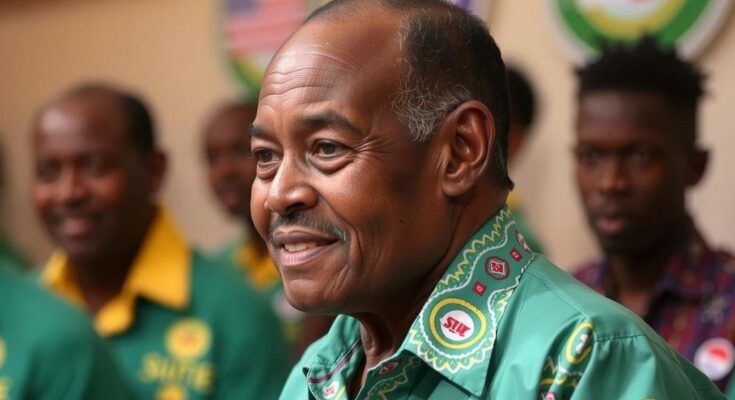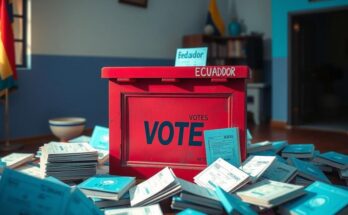Chad is holding its first parliamentary elections in over a decade, with significant opposition boycotting the polls. The elections are seen as an attempt to formally conclude a transitional period after the 2021 death of longtime President Idriss Deby. Concerns over electoral fairness abound as the government faces accusations of repression, with many citizens advocating for a more inclusive democratic process.
Chad is conducting its first parliamentary elections in over a decade, coinciding with regional and local polls as well. This significant electoral event is perceived as a vital step towards establishing a democratic framework following the prolonged transitional phase initiated after the death of long-standing leader Idriss Deby in 2021. However, skepticism abounds among opposition parties that are boycotting the elections, labeling them as a façade aimed at legitimizing a political dynasty under the ruling Patriotic Salvation Movement (MPS). The elections have been marked by financial constraints and delays attributed to the COVID-19 pandemic, heightening concerns about their fairness and credibility.
Despite Chad’s status as one of the poorest nations in Africa, it holds elections amidst severe security challenges, including conflicts spilling over from Sudan and attacks by Boko Haram near Lake Chad. The United Nations recognizes the country’s precarious situation, ranking it low on the Human Development Index. The ongoing power struggle, exacerbated by the government’s oppressive approach and the regime’s historical ties to coups and military rule, casts doubt on the electoral process.
Nearly 8.3 million out of its 18 million citizens are registered to vote for members of its 188-seat parliament, yet critics argue that the lack of opposition participation undermines the likelihood of a credible election. This is compounded by a government decision to restrict online media’s electoral coverage, raising further concerns about press freedom. With opposition groups pledging to monitor election conduct and report violations, tensions remain high as the MPS appears poised to secure its dominance.
As the election unfolds, it is crucial to scrutinize the political landscape in Chad, especially with the backdrop of alleged electoral manipulation, governmental repression, and the ongoing demand for a truly democratic process that encompasses all voices. The international community and rights organizations are calling for an inclusive and fair electoral process to ensure the legitimacy of the votes cast by Chadians, fostering hope for a more transparent governance framework in the future.
Chad has faced numerous challenges over the last decade, with no parliamentary elections held since 2011 due to continuous postponements by the government. The death of Idriss Deby in 2021 marked a crucial turning point, leading to the ascension of his son, Mahamat Idriss Deby, amidst calls for a democratic transition. This election is especially significant as it attempts to formally end the transitional rule imposed by the military but faces severe scrutiny amid opposition boycotts and allegations of political repression.
In conclusion, Chad’s first parliamentary election in over a decade represents a pivotal moment in the country’s contentious journey towards democracy. Yet, with significant portions of the opposition boycotting and serious doubts about the electoral integrity, the outcome may reaffirm the ruling MPS’s long-standing control. Ensuring inclusive participation and fair electoral conditions remains imperative for the legitimacy and future stability of Chad’s political landscape.
Original Source: www.aljazeera.com




